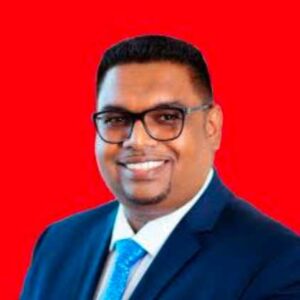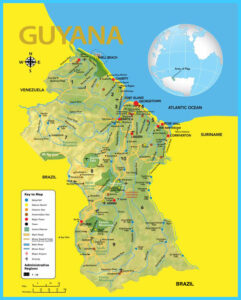Congratulations to Dr. Mohamed Irfaan Ali as Guyana's New President
The Indian Diaspora Council International (IDC) joins with its global membership and affiliates in congratulating Dr. Mohamed Irfaan Ali as Guyana’s new President. Dr. Ali is a Guyanese politician, Member of Parliament and former Minister of Housing in Guyana who was the successful presidential candidate for the People’s Progressive Party/Civic (PPP/C) in the March 2, 2020 general elections.
Stabroek News reported: “Mohamed Irfaan Ali was today declared the 9th Executive President of Guyana by GECOM Chairperson, Claudette Singh. The announcement came this afternoon after Chief Election Officer Keith Lowenfield submitted the results of the March 2nd general elections using the recount figure which shows a victory for the PPP/C. The Chair has since written Chancellor of the Judiciary, Justice Yonette Cummings advising of the result and requesting that arrangements be made to facilitate the swearing in. Lowenfield made the submission this afternoon to the GECOM Chair paving the way for the long-awaited declaration of the result and potentially ending a five-month-old crisis.”
Lowenfield submitted his election report using the figures obtained during the national recount, and it showed the PPP/C won the elections with 233,336 votes. David Granger’s “A Partnership for National Unity” (APNU) and “Alliance For Change” (AFC) coalition received 217,920 votes. The 5-month long delay after the conclusion of the elections is finally over after several appeals by APNU/AFC coalition and threats of sanctions by the United States of America and declarations by Canada, the United Kingdom (UK), CARICOM and others.
“Guyana officially the Co-operative Republic of Guyana, is on the northern mainland of South America. Originally inhabited by many indigenous groups, Guyana was settled by the Dutch before coming under British control in the late 18th century. It was governed as British Guiana, with a mostly plantation-style economy until the 1950s. It gained independence in 1966, and officially became a republic within the Commonwealth of Nations in 1970. The legacy of British rule is reflected in the country’s political administration and diverse population, which includes Indian, African, Amerindian, and multiracial groups. The largest ethnic group is the Indo-Guyanese (also known as East Indians), the descendants of indentured laborers from India, who make up 43.5% of the population, according to the 2002 census. They are followed by the Afro-Guyanese, the descendants of slaves from Africa, who constitute 30.2%. Guyanese of mixed heritage make up 16.7%, while the indigenous peoples (known locally as Amerindians) make up 9.1%. Wikipedia.
IDC supports the shared sentiments of Guyanese in and outside of Guyana who envision a Guyana using its existing and newfound natural resources as well as human resources with committed, selfless leadership to foster a progressive, new Guyana which can easily surpass many countries with significant achievements in many areas of endeavor. IDC is pleased to acknowledge that Dr Mohamed Irfaan Ali’s as President of Guyana is significant among outstanding achievements of people of Indian origin globally.



